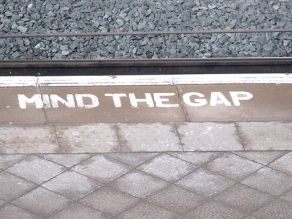 I was chatting to a young friend of mine, born and bred in Birmingham as far as I know, who was educated in Aberystwyth. He can be forgiven for looking so cool and feeling on top of the world at the moment because he’s in love with an Estonian woman – she’s about his age and he describes her as ‘Cultured, man! She’s read Kerouac, Herman Hesse – the lot. When did you last meet an English girl like that?’
I was chatting to a young friend of mine, born and bred in Birmingham as far as I know, who was educated in Aberystwyth. He can be forgiven for looking so cool and feeling on top of the world at the moment because he’s in love with an Estonian woman – she’s about his age and he describes her as ‘Cultured, man! She’s read Kerouac, Herman Hesse – the lot. When did you last meet an English girl like that?’
Probably, to answer his question, the last time I had a steady girlfriend; which is now more years ago than I care to remember. And then there’s one of the barmaids in my local pub: she reads everything. In her own words, ‘I’m not educated, John, but I still like to read. I go to plays but my boyfriend’s not interested and says he gets bored.’ She was referring to an abortive attempt to get her man to appreciate Macbeth: not the Bard’s biggest box office hit even when it was freshly minted. The girl loves Camus, but knows little about poetry. I count her as a friend but she doesn’t know about this blog…
I live near the centre of Birmingham, here in the UK, and meeting a smart, interesting educated women is about as common as finding a tightly rolled wad of £20 notes wrapped in silver paper with a purple ribbon around it. This was where our conversation took us: if you have intellectual pretensions (as they are acidically called) you can forget about finding peace of mind here in the Midlands. You will be deemed undatable, ‘weird’ (a ‘fuck you’ word if ever there was one) and more to the point, you will wake up one morning wondering what the hell you’re doing here!
Although there are a few small theatres nearby I can’t summon up much enthusiasm for endlessly revisiting ‘The Importance of Being Ernest’. I studied the play at school and I saw it in Norwich many years ago. Where do I go to see new performances by local playwrights? Where, thinking musically, are all the exciting new unsigned bands? Where is the ‘vibrant urban culture’ I keep reading about in glossy magazines – funded by even glossier adverts – but never experience?
It doesn’t exist. Even my 20-something Birmingham friend says so, and he’s about as cutting edge as they come. Most British cities seem to be built around service industries, suits and most of all, popular culture. They don’t cater for independent thinkers or creatives. If you listen to Rhianna and watch The Voice, you’re in. If you read (and love!) poetry and don’t have a TV, then you’re a ghost.
And that’s the heart of the matter: pop culture has wiped out all attempts to generate a truly dynamic and exciting cultural scene in English towns. Arts Council funding is being silently slashed on a yearly basis, and all that remains is a hollow vessel full of marketing ‘messages’, attempting to sell our towns and cities as wonderful places to be. They have, in fact, become endlessly tedious places to be having had the heart and soul ripped out of them years ago. In short, if you want to see an interesting play, go to London – and good luck paying for your train fair and your hotel, because you will be fleeced into financial oblivion.
British culture has become an oxymoron, because the truth is it can only thrive if people are truly committed to it. Not so in England where the arts are – in a detatched kind of way – considered airy-fairy and useless. Unlike, of course, a multi-million pound call centre which is ‘useful’ and ‘provides jobs.’ Great. Some people (like our current Prime Minister) are so interesting they might as well disappear up their own fissures. They will make you fissures of men…
I will be 49 this year and I have given up any heartfelt hope of meeting a soul mate. Smart Midlands women don’t discuss poetry or art. They drive fast cars, dream of trips abroad and pay their mortgages. They chase promotions and talk about soap operas. They visit chic bars which I cannot enter without bursting into flames. Or perhaps I watch too many vampyre movies. To be ‘clever’ is always extended into being ‘too clever by half’.
You may well read this and accuse me of negative gender stereotyping. Fair dos, but I have no such goal and I’m only speaking about my everyday experiences based on observation. That this has somehow become a cultural taboo means we are all much poorer for our loss of soul and collective denigration of spirit – but I least I know where Estonia is.